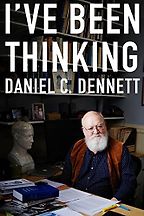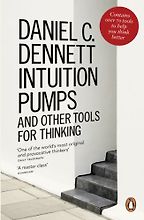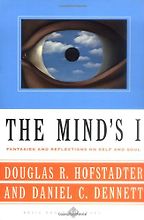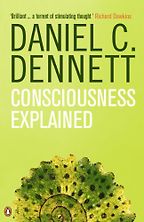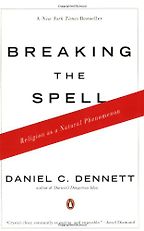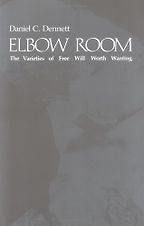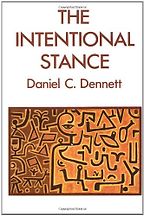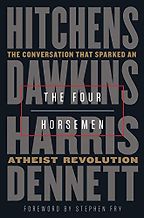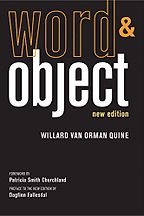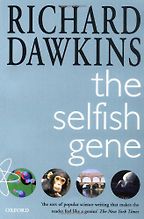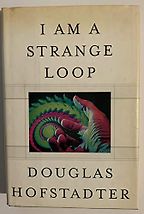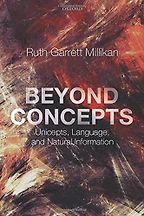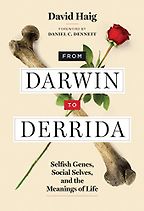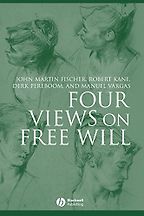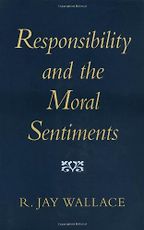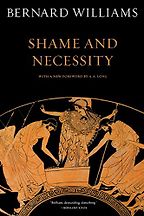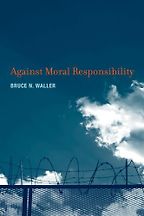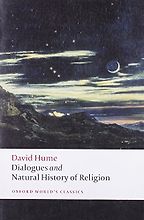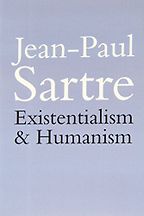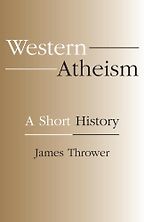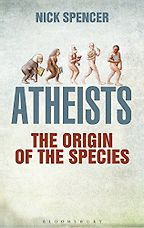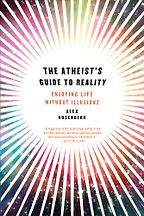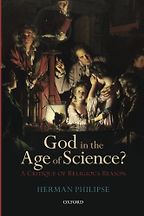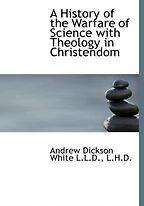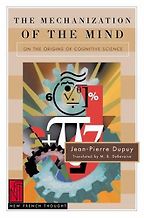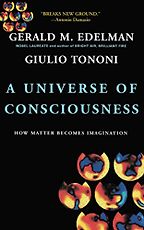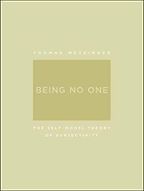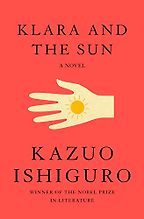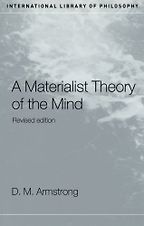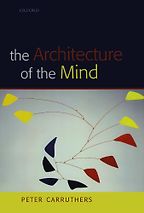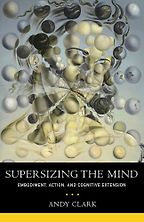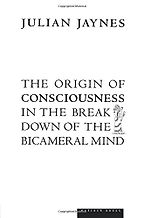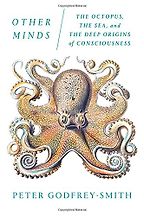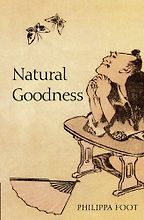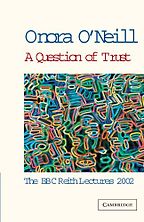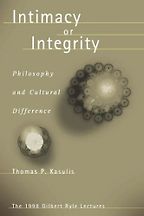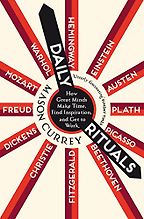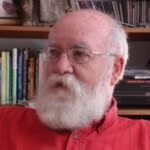
©Susan Dennett
Books by Daniel Dennett
Daniel Dennett (1942-2024) was an American philosopher. (Read our 2023 interview with Daniel Dennett, about his favourite books). He was University Professor Emeritus at Tufts University and best known for his work on consciousness. Immersed in contemporary neuroscience, he had a superb knack for finding memorable images to communicate his theories about the way consciousness works. He was also known for his writing on free will. Dennett was a prominent atheist, one of the ‘four horsemen’ (along with Christopher Hitchens, Sam Harris and Richard Dawkins).
Dennett was a tireless critic of sloppy thinking and even if you don’t agree with him, his books are always entertaining to read. He was a lively writer and really crafted his books, another reason they have been recommended many, many times in Five Books interviews.
I've Been Thinking
by Daniel Dennett
Philosopher Daniel Dennett describes himself as a pack rat or a magpie - picking up ideas and facts that might be useful from a wide range of sources. His memoir reflects that. He has made connections with researchers in many fields, particularly evolutionary theory, neuroscience and computing and his distinctive philosophical career reflects that. He’s best known as a philosopher of consciousness, a defender of a compatibilism about free will, and as an uncompromising atheist. But the book describes his wide interests (which include music, sculpture, farming, and sailing), and includes some great anecdotes as well as a bit of score-settling with philosophers he has disagreed with over the years.
“Dennett’s Intuition Pumps is a really good book. It does have a lot of these standard critical thinking things in it. But he’s very witty, which is not very normal for philosophers. So in amongst Occam’s Razor and all that kind of stuff, he’s also got more quirky, unusual things. He has the idea of a ‘deepity,’ a phrase which he’s coined. As I understand it, a deepity is an utterance which sounds profound, but if you examine it, isn’t at all. Social media is a great promoter of deepities, these little quotes, which make you go, ‘Ah great, fantastic.’ And you’re clicking through them so quickly, that you don’t even ask what it means; it just sounds great and you share it and you go on to the next deepity.” Read more...
The best books on How To Think (Like a Philosopher)
Julian Baggini, Philosopher
“I have no hesitation at all about this book because it’s got so many absolutely classic papers in it.” Read more...
The best books on Consciousness
Susan Blackmore, Psychologist
“Dennett, in this book, is trying to dismiss the dualist intuition completely, to get rid of it entirely. When he says ‘Consciousness Explained’, in my understanding it’s explicable for Dennett because he thinks we are mistaken in thinking that there is anything beyond what is within the realm of normal physical descriptions of mechanisms and their dispositions and their properties. That’s all we need. This book has been a massive influence on me, as has Dennett himself, throughout my career…But I’m not sure I’m entirely convinced by his perspective.” Read more...
Best Books on the Neuroscience of Consciousness
Anil Seth, Scientist
“He calls it Breaking the Spell for a reason. He thinks there is this sanctity about religion which prevents people from asking, ‘Where did it come from in the first place?’ It’s a human construct, after all, it wasn’t given to humanity by God. It couldn’t have been, because we have thousands of different religions. So even religious people recognize the human contribution to religion. At the beginning of the book, he says it could be real. We could be worshipping a real divine being. But we still want to know where this system of beliefs and practices and ceremonies came from — and it’s not off limits. That’s the importance to me of that book.” Read more...
The best books on The Incompatibility of Religion and Science
Jerry Coyne, Biologist
“Elbow Room was written in 1984 so perhaps it’s getting a bit long in the tooth. However, I selected it because it’s a really good place for readers to start if they want to work their way into the contemporary debate. In terms of style, it’s very accessible and enjoyable. Dennett is a sharp philosopher with an engaging style. The main aim of this book is to debunk or defang the feeling that determinism presents an ominous sceptical threat to freedom and moral responsibility. Dennett sees the free will problem as a problem generated by philosophy. Philosophers abuse what he calls ‘intuition pumps’ and employ misleading philosophical analogies. By these means they generate groundless worries about the implications and consequences of determinism. An example would be, ‘If determinism is true, it would be like being in prison.’ Or ‘If determinism is true, we’re like a robot, mere mechanism.’ Dennett systematically tries to debunk claims of this kind and by doing this he wants to, as he puts it, vindicate a modestly optimistic self-image” Read more...
The best books on Free Will and Responsibility
Paul Russell, Philosopher
The Four Horsemen: The Conversation That Sparked an Atheist Revolution
by Christopher Hitchens, Daniel Dennett, Richard Dawkins & Sam Harris
In The Four Horsemen, introduced by the always interesting and entertaining Stephen Fry, we can read the transcript of a 2007 discussion between four prominent atheists: Christopher Hitchens, Daniel Dennett, Sam Harris and Richard Dawkins, whose books you'll see recommended on Five Books time and time again. The conversation took place in Washington DC and the video of it, which you can see here, went viral.
Interviews with Daniel Dennett
Favorite Books, recommended by Daniel Dennett
Daniel Dennett is not only one of the most distinguished philosophers of mind working today, he also writes great books. As he publishes his memoir, I’ve Been Thinking, he talks us through some of the books that most influenced him, including two by evolutionary biologists.
Interviews where books by Daniel Dennett were recommended
The best books on Free Will and Responsibility, recommended by Paul Russell
Many philosophical theories try to evade the uncomfortable truth that luck and fate play a role in the conduct of our moral lives, argues philosopher Paul Russell. He chooses the best books on free will and responsibility.
The best books on Atheism, recommended by Julian Baggini
Which are the best books on atheism? The British philosopher Julian Baggini, author of Atheism: A Very Short Introduction, chooses his top five.
-

1
The Varieties of Scientific Experience: A Personal View of the Search for God
by Carl Sagan -

2
The Atheist's Guide to Reality: Enjoying Life without Illusions
by Alex Rosenberg -

3
God in the Age of Science?: A Critique of Religious Reason
by Herman Philipse -

4
Breaking the Spell: Religion as a Natural Phenomenon
by Daniel Dennett -

5
A History of the Warfare of Science with Theology in Christendom
by Andrew Dickson White
The best books on The Incompatibility of Religion and Science, recommended by Jerry Coyne
The best books on The Incompatibility of Religion and Science, recommended by Jerry Coyne
Embracing a scientific worldview excludes the possibility of also believing in God, says evolutionary biologist Jerry Coyne. He picks five non-accommodationist books.
Best Books on the Neuroscience of Consciousness, recommended by Anil Seth
Nearly every human has a sense of self, a feeling that we are located in a body that’s looking out at the world and experiencing it over the course of a lifetime. Some people even think of it as a soul or other nonphysical reality that is yet somehow connected to the blood and bones that make up our bodies. How things seem, however, is quite often an unreliable guide to how things are, says neuroscientist Anil Seth. Here he recommends five key books that led him to his own understanding of consciousness, and explores why it is that what is likely an illusion can be so utterly convincing.
-

1
A Materialist Theory of the Mind
by D M Armstrong -

2
Consciousness Explained
by Daniel Dennett -

3
Varieties of Meaning: The 2002 Jean Nicod Lectures
by Ruth Garrett Millikan -

4
The Architecture of the Mind
by Peter Carruthers -

5
Supersizing the Mind: Embodiment, Action, and Cognitive Extension
by Andy Clark
The best books on Philosophy of Mind, recommended by Keith Frankish
The best books on Philosophy of Mind, recommended by Keith Frankish
The experimental investigation of the mind is now the province of psychology and neuroscience – but many conceptual and metaphysical questions remain. Philosophy of mind deals with these fundamental questions, says Keith Frankish, as he selects five of the best books in the field.
-

1
Consciousness Explained
by Daniel Dennett -

2
Principles of Psychology
by William James -

3
The Origin of Consciousness in the Breakdown of the Bicameral Mind
by Julian Jaynes -

4
The Mind's I: Fantasies And Reflections On Self & Soul
by Daniel Dennett & Douglas Hofstadter -

5
Other Minds: The Octopus and the Evolution of Intelligent Life
by Peter Godfrey-Smith
The best books on Consciousness, recommended by Susan Blackmore
The best books on Consciousness, recommended by Susan Blackmore
The ‘hard problem’ of consciousness – of how the physical matter of the brain produces the psychological phenomenon of consciousness – has dogged psychologists and neuroscientists for decades. But what if we’ve been posing the question incorrectly all this time? The psychologist Susan Blackmore discusses five key texts that tackle this quicksilver concept.
-

1
Intuition Pumps And Other Tools for Thinking
by Daniel Dennett -

2
Natural Goodness
by Philippa Foot -

3
A Question of Trust
by Onora O’Neill -

4
Intimacy or Integrity: Philosophy and Cultural Difference
by Thomas Kasulis -

5
Daily Rituals: How Great Minds Make Time, Find Inspiration, and Get to Work
by Mason Currey
The best books on How To Think (Like a Philosopher), recommended by Julian Baggini
The best books on How To Think (Like a Philosopher), recommended by Julian Baggini
We all have opinions about things and sometimes quite strong ones. When it comes to our values and politics we also tend to think we’re right. That’s why examining how we think is so important, argues philosopher Julian Baggini. That’s something philosophy can help with, if it’s done well. Here he recommends five books that shed some light on how philosophers think, when they’re thinking at their best.
